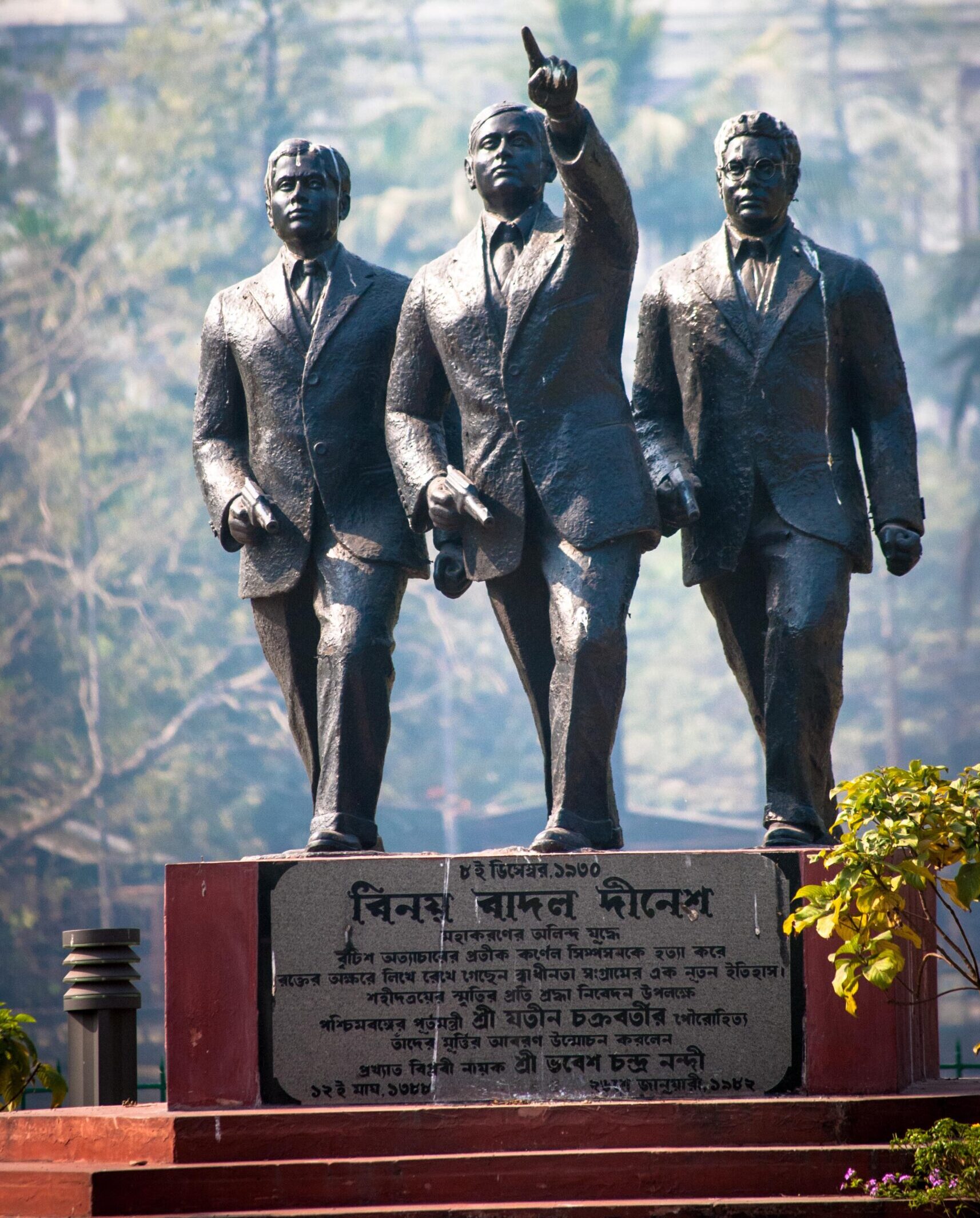Oliver Stone’s Nixon was not a film that I was eager to see. Stone is a brilliant and creative artist, and Nixon has long fascinated, sometimes appalled, and sometimes impressed me as a politician. But devoting more than three hours of the Christmas season to watching my old nemesis of 1972 depicted on the screen was not a prospect that thrilled me. My family and I went to an early Washington showing of the film primarily so that I could write this review. So what do I now think about the film?
I think it is superb—the best film I have seen in a long time. It riveted me to the screen from start to finish. I walked out of the theater prepared to nominate the movie and the director as the best of the year. Anthony Hopkins, who plays Nixon, deserves nomination for the best actor award. He is surely one of the great actors of our time, and he captures Nixon in a remarkably convincing way. Joan Allen, who plays Pat Nixon, could easily be named the best supporting actress of the year.
Anyone with even a casual interest in American politics will like this film. I write these words despite the fact that I am described by the screen Nixon as “that pansy, poet, socialist.” This description has seemingly not diminished me in the eyes of my wife, daughters, and son—whom I observed laughing appreciatively. There may be a reason for this: Nixon never once mentioned my name in public in the 1972 presidential campaign. He would neither debate me, nor appear on the same stage, or even in the same city. So I think my family was cheered to hear my name at long last on Mr. Nixon’s lips—courtesy of Oliver Stone and Anthony Hopkins.
Some others mentioned in the film come off much worse. Gordon Liddy, one of the Watergate insiders, is referred to by both Nixon and Bob Haldeman as “a fruitcake.” They clearly regarded him as a contemptible nut. Henry Kissinger will not like his portrayal at all. But this is not a film about Kissinger or Liddy or me or anyone other than Richard Nixon.
I think the central character is treated fairly, with balanced consideration of his complicated and contradictory nature. It has been reported that the Nixon family is very unhappy with this treatment—particularly Julie and Tricia, the Nixon daughters. But I wonder if they have yet seen the film or are judging it on reports from others. I know and like these two young women well enough to believe that, if they look at the film without prejudice, they may come to appreciate it. They might even see a rather sympathetic portrayal of their dad’s better qualities and their mother’s special strengths.
This is not a documentary film to be judged primarily for its attention to historical accuracy. It is a drama in which the director has sought to present his insights relative to Nixon as a person and as a political leader. I think most of those insights are well conceived and grounded in reality. For example, Nixon boasts of his political skill as a longtime anti-Communist in promoting detente with the Soviet Union, opening up relations with China, and disengaging American forces from Vietnam without a right-wing rebellion. “I’m the only politician who could have gotten away with this and I was able to do it because I’ve fought the Communists for so many years that my credentials to deal with them are accepted,” Nixon says in effect on the screen as he did during his life. He is doubtless right about all of this.
The screen Nixon may also be right in contending that disengaging American forces from Vietnam without a domestic political upheaval from the right wing was his most difficult political achievement. Early in the Nixon administration I went to the White House to see the new national security adviser, Henry Kissinger. My purpose was to argue that the new administration should quickly end American involvement in the disastrous Vietnam War. I assumed that Kissinger must have surely realized by 1969 that the deepening American military involvement had been a tragic mistake. Acting on this assumption, I said in effect that President Nixon could simply say that his predecessors, Presidents Kennedy and Johnson, had in good faith committed forces to Vietnam and that Nixon had supported these efforts. But it had become clear that this course could no longer be consistent with our national interest and the realities facing us in Vietnam. Mr. Kissinger readily conceded that the war was a terrible mistake. But, he said, if the president were to pull out now, the American right wing would go out of control across the country. The president would lose his most committed constituency. We couldn’t govern the country, he said.
He may have been right in this political judgment. But it disturbed me deeply, as it does now, to realize that we were continuing to slaughter the Vietnamese people and our own soldiers, not because it was a military necessity but purely for domestic political reasons. Nothing in the Nixon movie lends comfort to any other conclusion.
As the screen Nixon says to his wife when she complains about his lifetime obsession with politics, “Everything is politics. You’re politics. I’m politics.” Oliver Stone is right in seeing Nixon’s four-year prolongation of the Vietnam War as “politics.” It certainly bore no relationship to the realities facing us in Southeast Asia.
Stone drives this point home when he has a college student confront Nixon during his nighttime visit to the war protestors’ vigil at the Lincoln Memorial following the May 1970 Kent State killing of four students. “You don’t stop this war,” she said, “because you can’t. The system won’t let you.” Back at the White House, Nixon confesses to an aide, “That 19 year-old kid told the truth.”
Nixon on the screen accepts a number of political realities. “It’s the cover-up, not the deed that’s the real problem here,” he says at the height of the Watergate investigations. “They can’t impeach me for Cambodia. The president can bomb any country he wants,” he asserts.
At an earlier time he understood that the deaths of John and Robert Kennedy opened the way to the White House for him, just as he had known that a second presidential campaign against John Kennedy in 1964 would have been hopeless. “Nobody is going to beat Kennedy in 1964,” he told those who suggested to him that he should run again after his razor-thin defeat by Kennedy in 1960.
He also knew, as the film underscores, that the shooting of Governor George Wallace in 1972 virtually assured his re-election to the White House that year. I have always believed that save for the shooting of Wallace, the Alabama governor as an Independent would have taken the South and a number of northern states from Nixon in 1972. This might not have assured my election, but at the least, it would have made for a close battle between Nixon and me—more on the order of the Nixon-Humphrey campaign of 1968, when Wallace did run as an Independent. Curiously, neither Humphrey nor his campaign of 1968 is referred to in the film.
The Stone film gives considerable attention to Nixon’s difficult boyhood years in explaining his later political conduct: his economically pressed family; his demanding, hardworking father; his deadly serious Quaker mother, who told him, “You achieve strength in this life—happiness in the next;” the death of his two brothers; his small-town, unglamorous childhood years; his painful shortcomings as a stubborn but untalented football player in which he was exploited as a tackling dummy by larger players.
This background stood in sharp and painful contrast to the wealth, travels, sophistication, grace, elegance, and diversity of presidential opponent John Kennedy. Nixon was a product of Whittier College, Kennedy of the Ivy League. Nixon was scorned by the working press, Kennedy was adored.
The film demonstrates repeatedly Nixon’ feelings of inadequacy and resentment toward what he regarded as Kennedy’s undeserved advantages. He comes to believe that the press as much as the public despised him not be cause of his policies but because he was an unappealing person. “It’s not Vietnam they hate; it’s me. I’m the enemy,” he cried. The screen Pat Nixon agrees. “They’ll never love you no matter how many elections you win,” she tells her husband. Another commentator in the film describes him as “the darkness reaching out for the darkness.”
Nixon believed on the screen and in life that the press never forgave him for his ruthless pursuit of Alger Hiss, the much-admired foreign service officer of the Roosevelt-Truman era. If that view of the press reaction is correct, I for one am grateful for it. I’ve always believed that Hiss was a victim of the “red scare” and of Nixon’s political rapacity. It is national outrage that this essentially decent and patriotic American went to prison as consequence of the demagoguery of Nixon and the ignominious House Committee on Un-American Activities.
The press, as well as many of the rest of us, including Oliver Stone, have not forgotten that Nixon was first elected to the House in shameful campaign of distortion of the record of one of the most admired members of Congress, the late Jerry Voorhis. He waged similar campaign that carried him to the U.S. Senate against the late Helen Douglas.
These dark episodes in the career of Nixon are not overlooked in the film. But neither are the positive Nixon achievements and his deeply human qualities. I have no hesitancy in recommending to my fellow citizens that they take the time to see this superb film. It represents much of our recent history in dramatic and memorable style.
George McGovern received his PhD in history from Northwestern University. He is a former U.S. Senator from South Dakota and the 1972 Democratic Party presidential nominee.


